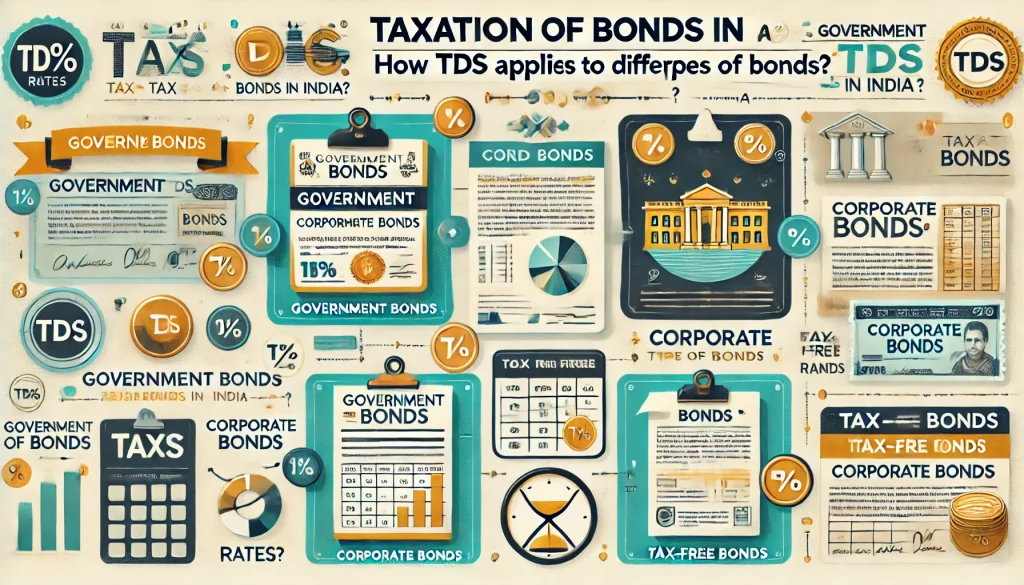
If you are considering investing in India, you will come across a wide range of options and bonds are among the top choices. Bonds are types of loans offered by governments or companies to raise capital. In return, they pay interest to you for a set period and repay the original investment at maturity. In India, the two main types of bonds you can explore are government bonds and corporate bonds.
Let us dive into this blog to understand the key differences between these two types and figure out which one suits your investment objectives.
What Are Government Bonds?
The Government of India issues debt securities known as government bonds to meet its financial obligations and support various expenditures. These bonds provide investors with regular interest payments, referred to as coupon payments, over a specified period.
Acting on behalf of the government, the RBI facilitates the issuance and auction of these bonds to investors. The funds raised are typically allocated to public welfare initiatives and infrastructure projects. Investors who buy these bonds receive a fixed interest payment regularly and are repaid the bond’s principal value upon maturity.
Imagine the government of India needs funds to build a new highway. It issues government bonds with a face value of ₹5,000, offering 6% annual interest and a 15-year maturity period.
If you purchase bonds worth ₹50,000, you will receive ₹3,000 (6% of ₹50,000) as annual interest. After 15 years, your initial ₹50,000 investment will also be returned. This provides you with steady returns, while the government secures funds for its infrastructure projects.
What Are Corporate Bonds?
Corporate bonds are debt instruments issued by companies to raise funds for different expenses like acquisitions, expansion or other major projects. By buying these bonds, investors lend money to the company, which promises to repay the principal at maturity and pay periodic interest, known as the coupon rate.
Corporate bonds are backed by the company’s assets and cash flow. The bond’s risk level depends on the company’s credit rating, with higher-rated bonds offering lower risk and interest rates.
Suppose a pharmaceutical company plans to set up a new research facility, requiring ₹60 million in funding. To raise this amount, the company issues corporate bonds with a face value of ₹20,000, an annual interest rate of 10%, and a maturity period of 7 years.
If you invest ₹2,00,000 in these bonds, you will earn ₹20,000 (10% of ₹2,00,000) as annual interest. At the end of 7 years, you will also receive your principal amount of ₹2,00,000. This enables the company to secure the necessary funds, while you earn regular interest income.
Key Difference Between Corporate And Government Bonds
The following table shows a comparison of corporate bonds vs government bonds:
| Parameters | Corporate Bonds | Government Bonds |
| Investment Goal | Aims to provide higher returns to investors | Offers safety and stability and aims to provide a reliable income stream |
| Regulatory Authority | Issued by private companies or corporations | Issued by the central or state government |
| Issuer | The Securities Contract (Regulation) Act and the Securities And Exchange Board of India (SEBI) govern corporate bonds. | The Reserve Bank of India (RBI) oversees and manages investments in government bonds. |
| Investment Risks | Corporate bonds carry a higher level of risk as there is a possibility of default | Safest investment option since backed by the government |
| Return | Offer higher returns to compensate for the increased risk | Provide lower returns due to their safer nature |
| Liquidity | Highly liquid making them easy to trade | Its liquidity depends on factors such as market demand, the company’s reputation and the bond’s rating |
| Suitability | Ideal for investors who are willing to take more risk | Ideal for conservative investors who are not willing to take risk |
| Taxation | Interest earned from corporate bonds is fully taxable | Interest earned from government bonds may qualify for certain tax benefits |
Final Word
Choosing between government and corporate bonds requires you to evaluate their pros and cons. When making investment decisions, it is important to assess your financial goals, risk appetite and overall financial situation. Moreover, you can also consult a financial advisor who can provide expert guidance, helping you navigate the complexities of investments and create a strategy that fits your needs and objectives.
Frequently Asked Questions
Corporate bonds carry some level of risk but offer higher returns compared to government bonds. On the other hand, government bonds are backed by a sovereign guarantee, making them a safer investment. Ultimately, the best option depends on your investment goals and risk tolerance.
Corporate bonds do not pay dividends. Instead, they provide fixed interest payments and return the principal at maturity, regardless of the company’s profitability or stock performance. Unlike dividends, these interest payments are mandatory for the company.
Yes, corporate bonds are generally riskier than government bonds, but they offer the potential for higher returns. Companies with strong credit ratings are less likely to default, whereas those with lower ratings come with increased risk. This bond comparison helps you make a decision whether you are willing to take a high risk in exchange for greater returns or not.
Corporate bonds come with different maturity periods, which specify when the issuing company will repay the principal. These periods are classified as short-term (less than three years), medium-term (four to ten years) and long-term (over ten years).
If you are looking for long-term growth, corporate bonds are typically a better option as they offer higher returns. However, keep in mind that they carry more risk compared to government bonds.


